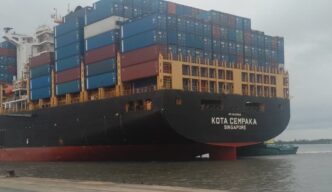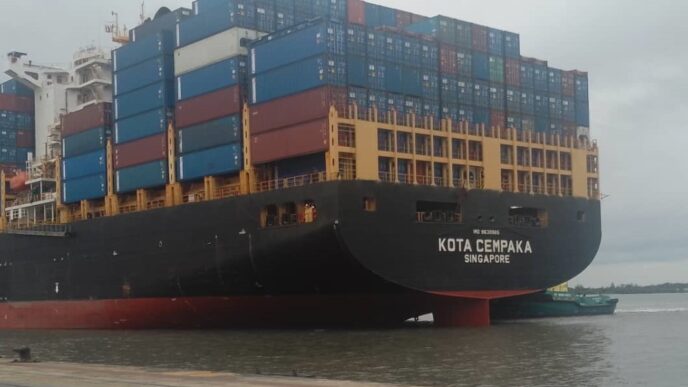The PricewaterhouseCoopers (PwC) says high energy costs, interest rates, and excessive taxes, are major challenges faced by micro, small and medium enterprises (MSMEs) in Nigeria.
The PwC highlighted the challenges in its 2024 MSME survey, titled, ‘Building Resilience: Strategies for MSME Success in a Changing Landscape’.
According to the financial services firm, the survey included 567 MSMEs across 13 sectors and 29 states.
PwC said over 50 percent of MSMEs reported falling sales due to high prices and low consumer spending power.
Advertisement
“When asked about the reasons for this decline, 38% of respondents pointed to the high cost of their products, while 36% cited the low purchasing power of consumers,” the report reads.
“Additionally, 12% noted that consumers were switching to alternative products, and 10% attributed the decline to changing consumer preferences.
“These challenges are compounded by macroeconomic headwinds such as inflationary pressures, currency depreciation, and slow economic growth.
Advertisement
“Headline inflation in December 2023 was reported at 28.92%, driven by increased food prices, naira devaluation, high import bills, and rising energy and logistics costs.
“Inflation is projected to decline marginally to 21% in 2024, but MSMEs may continue to face sustained inflationary pressure due to the pass-through effect of rising international oil prices on domestic energy costs and exchange rate pressures.
“This is likely to increase the cost of inputs for MSMEs, which will, in turn, raise the prices of final goods and services, further impacting demand.”
The report also pointed out that MSMEs’ growth potential was stunted by funding gaps, power outages, and over-taxation.
Advertisement
The firm said the business owners surveyed reported that the top factors hindering their growth include inadequate access to finance, poor electricity, multiple taxes and levies, inadequate skilled labour, insecurity, and government policies.
“Funding is a critical enabler of the growth and development of small and medium enterprises, with 35% of the businesses surveyed citing inadequate access to finance as their number one challenge,” the report said.
“Infrastructure challenges, particularly electricity, account for the biggest costs to the daily operations of MSMEs.
“Unreliable power supply is a major challenge for 21% of businesses. Nigeria’s power sector faces numerous issues, including deteriorating plant capacities, poor maintenance, inadequate gas supply, limited distribution networks, and the commercial viability of DisCos operations.
Advertisement
“These challenges have had an adverse impact on the business environment, contributing to significant economic costs for MSMEs and the broader economy.
“Other structural challenges include multiple taxation (12%), inadequate skilled labour (11%), and insecurity (10%).”
Advertisement
PwC also said Nigerian MSMEs require an estimated $32.2 billion (₦13 trillion) in financing.
The organisation said micro and small enterprises, particularly in agriculture and retail, need loans under $20,000.
Advertisement
The report, however, said limited private sector lending, poor infrastructure, and lack of documentation hinder access to credit.
Commenting on the survey, Sam Abu, country senior partner at PwC Nigeria, said MSMEs continue to contribute significantly to the global economy — creating jobs, generating income, and fostering skills development.
Advertisement
“These contributions make the sector pivotal to Nigeria’s growth, especially now given our country’s current challenges,” Abu said.
“However, the sector’s full potential remains untapped due to persistent challenges that hinder its ability to lift people out of poverty and drive the economy forward.
“Despite these challenges, Nigerian MSMEs have demonstrated remarkable adaptability in navigating a complex business environment characterised by challenging macroeconomy and government policies, highlighting their potential to drive economic growth.”
‘MSMEs MUST EMBRACE DIGITAL SOLUTIONS’
Suggesting solutions, PwC said MSMEs must “embrace digital transformation, including adopting digital solutions for financial transactions and regulatory compliance to enhance operational flexibility and efficiency”.
“Additionally, MSMEs should expand their market reach through digital marketing, e-commerce platforms, and online marketplaces to attract new customers,” the report said.
To navigate the challenging macroeconomic environment, the PwC said strategic pricing and value proposition adjustments are crucial to maintaining customer loyalty.
The report also said MSMEs advocating for supportive policies and enhancing financial management are essential steps, adding that investing in skills development and fostering community engagement would further strengthen the sector’s resilience.











